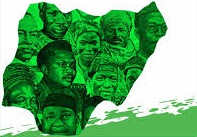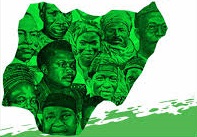
Igbo Culture and Language: A Comprehensive Exploration

Introduction
The Igbo people, also known as Ndi Igbo, are one of Nigeria’s largest ethnic groups, primarily located in the southeastern region. With a population exceeding 40 million, they are renowned for their rich cultural heritage, entrepreneurial spirit, and linguistic diversity. This 2000-word deep dive explores Igbo culture, traditions, language, and modern influences, providing a detailed understanding of their way of life.
1. The Origins of the Igbo People
Ancient History and Migration
-
The Igbo are believed to have originated from the Nri Kingdom, one of the oldest civilizations in West Africa (dating back to 900 AD).
-
Archaeological findings in Igbo-Ukwu (9th century) revealed advanced bronze artworks, proving early metallurgical expertise.
-
Some theories suggest links to the Nile Valley or Jewish ancestry due to cultural similarities, but most evidence supports indigenous development.
Pre-Colonial Igbo Society
-
The Igbo had a decentralized political system, unlike centralized kingdoms like Benin or Oyo.
-
Governance was based on:
-
Village republics (Obodo)
-
Council of elders (Ndị Okenye)
-
Democratic assemblies (Ọha)
-
Secret societies (Ekpe, Okonko, Ozo)
-
-
The Aro Confederacy (17th–19th century) played a major role in trade and spiritual influence through the Ibini Ukpabi (Long Juju) oracle.
2. Core Aspects of Igbo Culture
Religion and Spirituality
-
Traditional Beliefs (Odinala)
-
Chukwu (or Chineke): Supreme God.
-
Alusi/Arusi: Minor deities representing natural forces (e.g., Amadioha – god of thunder, Ani/Ala – earth goddess).
-
Ancestral Veneration (Ndichie): The dead are believed to influence the living.
-
-
Christianity Influence
-
Introduced by missionaries in the 19th century, now dominant (over 90% of Igbo are Christian).
-
Yet, many still blend Christianity with traditional beliefs.
-
Festivals and Celebrations
-
Iri Ji (New Yam Festival)
-
Celebrates the harvest season.
-
Features dances, masquerades, and feasting.
-
Symbolizes gratitude to Ala (earth goddess).
-
-
Mmanwu Festival (Masquerade Festival)
-
Displays ancestral spirits through masked performers.
-
Used for entertainment, discipline, and cultural preservation.
-
-
Igba Nkwu (Traditional Marriage)
-
A vibrant, multi-stage ceremony involving:
-
Introduction (Iku Aka)
-
Wine-carrying (Igba Nkwu)
-
Dowry payment (Ime Ego)
-
-
Traditional Attire
-
Men: Isiagu (embroidered top), wrapper, and red cap (Okpu Agbara).
-
Women: George wrapper, blouse, and headgear (Ichafu).
-
Royalty: Chiefs wear lion-head beads (Igba Ödụ), eagle feathers, and coral beads.
Igbo Cuisine
-
Staple Foods: Yam, cassava, cocoyam.
-
Popular Dishes:
-
Ji (Pounded Yam)
-
Ofe Onugbu (Bitterleaf Soup)
-
Nkwobi (Spicy Cow Foot)
-
Abacha (African Salad)
-
Ugba (Oil Bean Salad)
-
Music and Dance
-
Traditional Instruments:
-
Ekwe (Wooden Gong)
-
Ogene (Metal Gong)
-
Udu (Clay Drum)
-
-
Dance Styles:
-
Atilogwu (Acrobatic Dance)
-
Nkwa Igbabo (Celebratory Dance)
-
Ojongo (Warrior Dance)
-
3. The Igbo Language (Asụsụ Igbo)
Linguistic Classification
-
Part of the Niger-Congo language family.
-
Spoken by over 40 million people in Nigeria and the diaspora.
Dialects and Variations
-
Major Dialects:
-
Central Igbo (Owerri, Umuahia)
-
Northern Igbo (Enugu, Nsukka)
-
Southern Igbo (Owerri, Mbaise)
-
Western Igbo (Anioma, Delta)
-
-
Standard Igbo: Based on Central Igbo, used in education and media.
Writing System
-
Originally oral, with proverbs (Ilụ) and folktales (Akụkọ ifo) as key storytelling tools.
-
Latin script adopted after missionary influence.
-
Tonal Language: Meaning changes with pitch (e.g., “ákwá” (cry) vs. “àkwá” (egg)).
Common Igbo Phrases
| Igbo Phrase | English Meaning |
|---|---|
| Kedu? | How are you? |
| Ndewo | Hello / Greetings |
| Daalụ | Thank you |
| Biko | Please |
| Ka anyị gaa! | Let’s go! |
Proverbs (Ilụ) and Wisdom
-
“Egbe bere, ugo bere” – “Let the kite perch, let the eagle perch” (Live and let live).
-
“Onye ahụla nwanne ya anya, ahụla ya ọkụkọ” – “He who sees his brother’s beard on fire should water his own” (Prevent disaster before it spreads).
4. Igbo in Modern Times
The Igbo Diaspora
-
Business Dominance: Igbo people control a significant portion of Nigeria’s trade (e.g., Alaba International Market, Onitsha Main Market).
-
Global Influence: Large communities in USA, UK, South Africa, and Canada.
-
Tech & Innovation: Igbo entrepreneurs excel in finance, engineering, and digital startups.
Challenges
-
Language Decline: Many young Igbo prefer English; UNESCO lists Igbo as “vulnerable”.
-
Political Marginalization: Post-civil war (1967–1970) effects linger.
-
Cultural Erosion: Westernization threatens traditions.
Preservation Efforts
-
Igbo Language Revival: Schools, apps (e.g., “Igbo101”), and social media campaigns.
-
Cultural Festivals: Ofala, New Yam Festivals attract global audiences.
-
Literature & Media: Writers like Chinua Achebe & Chimamanda Adichie promote Igbo heritage.
Conclusion
The Igbo culture and language represent a vibrant, resilient, and deeply philosophical way of life. From ancient traditions to modern-day innovations, the Igbo continue to shape Nigeria and the world. Efforts to preserve their language and customs are crucial for future generations.
“Onye aghala nwanne ya!” (Do not abandon your brother!)
Thank you for following us incase you find any error in our contents please kindly send us mail or you need additional information you want us to add to any history kindly send us because all what we are posted was generated according to what we see online or we have acknowledged about in this case we can’t perfect in 100% kindly correct us in any aspect you find that’s need.
Noted:- We are not copy from any blog if you fund one your line or content is attach to our post kinky report to our [email protected] and we promise you we are going to rephrase it immediately thanks so much we love you all.
Leave a Reply